- Home
- Janet Dailey
Hart's Hollow Farm Page 9
Hart's Hollow Farm Read online
Page 9
High-rises? Kristen studied Mitch’s broad frame with fresh eyes. The dark pants and white dress shirt he’d donned in place of his sweaty jeans and T-shirt looked boardroom ready, even without a tie. His strong hands—those of an architect?—hung steady and sure by his sides, and his demeanor had altered slightly since they entered the community center. He seemed more formal. Reserved.
Mitch smiled, stepping back as the young woman released him. “I’m getting by. Kristen, meet Iris Jackson. She’s another former classmate and—”
“Troublemaker.” Iris laughed. “Mitch always covered for me when I misbehaved in Mrs. Landrum’s class.” She gave Kristen a once-over, then said, “I thought I heard someone new had settled in at Hart’s Hollow. Are you Mrs. Emmy’s new hire?”
“Yes,” Kristen said.
“Oh, that’s great. It’s always nice to have someone new join the Adams County fold. If you decide you need a break from the farm, look me up. Peach Grove might be small, but there’s plenty of fun to be had if you know where to look.” Iris leaned close and winked. “And I can give you all the juicy dirt on Mitch.”
Kristen avoided Mitch’s eyes. “Thank you, but I don’t know that this will be a permanent position.”
“Well, look who it is.”
Thankful for the distraction, Kristen moved aside as another man greeted Mitch. The small group began to reminisce. Before long, they were chatting and laughing in jovial tones, like most of the other people in the room. And, like most of the others, they were all dressed formally save for two other couples around Emmy’s age and a young woman who was flipping through a thick notebook.
Kristen tugged her T-shirt down lower over her worn jeans, smoothed a hand awkwardly over her ponytail, then inched across the room to the kids. For the first time in a long time, she found herself wishing she had more clothing in her bags than standard outdoor-work wear. And she was equally uncomfortable with the idea of being pulled into the Adams County fold, as Iris had put it. The community was obviously close-knit and full of entanglements, which she didn’t need.
“Good evening, everyone.” A woman moved to the front of the room and smiled. “I’m Dana Markham, a consultant with the Georgia Department of Transportation, and I’ll be leading Adams County’s first Citizens Advisory Committee meeting tonight.” She spread her arms toward the table. “It’s about that time, so if you’ll all have a seat, we’ll get started.”
Kristen looked at Dylan, who glanced at the doors behind them, a look of mournful resignation in his eyes, which she had to fight herself not to return.
“Dylan, there’s room on the bench in the back if you and Sadie would like to sit with my son,” Charles said. “You and Zach are in the same grade at school, aren’t you?”
Dylan cast a quick frown at Charles’s son, who looked just as enthusiastic to be there as he did, a skateboard propped against his shins. Then he presented to the older man a polite—if strained—smile. “Yes, sir. Come on, Sadie.”
The kids sat on the bench, and Emmy and Mitch headed for the packed table. All the wide leather chairs surrounding the table, except for two, were taken or reserved with purses or stacks of paper, which people moved before sitting.
Kristen turned and walked toward the door.
“Kristen.” Her steps slowed as Mitch’s low voice sounded behind her. “Where are you going?”
She whispered over her shoulder, “There isn’t room, and I’m not a member of the committee, so I thought I’d wait outside.”
“Oh no.” His hand curled loosely around her upper arm. The tangy scent of his aftershave teased her senses as he leaned close. “You’re in this, right?”
Heart tripping, she stopped and faced him. His charismatic demeanor affected her more than she had expected, and she stumbled, her breasts brushing his chest, as she turned. The masculine heat radiating from his sculpted length beckoned her to press against him and nuzzle her cheek against the smooth skin at the base of his throat.
“I-I’m in what?”
His gaze drifted over her mouth, then down to her chest. Lean cheeks flushing, he glanced around, released her arm slowly, then stepped back. “You’re in on this plan to save Hart’s Hollow with Emmy,” he prompted quietly. “As in, according to you, my word and ill-fated predictions aren’t gospel, remember?”
“But this is a county meeting,” she whispered. “I’m not a permanent resident, so I shouldn’t be here. And”—she lifted her chin toward the packed table—“there isn’t room.”
“We’ll find room.” He cupped her elbow, the rough pads of his fingers sliding over her skin, sending frissons of pleasure through her that were even more tempting than she’d imagined. “I’ll make a place for you, Kristen.”
His words were soft—so soft she barely heard them. But she did, and the unspoken possibilities she imagined behind them . . .
The hopes and dreams she’d let go of long ago, which she caught herself searching for in his voice . . .
Kristen spun toward the exit. “I’m just gonna slip out.”
The double doors thudded shut before she could take a step. The woman who’d welcomed the group earlier smiled, released the doorknobs, then returned to the front of the table and said, “Lights, please.”
Darkness engulfed the room as the ceiling projector clicked on and beamed a colorful image of Peach Grove’s welcome sign onto the wide screen.
Mitch lowered his head, his warm lips brushing Kristen’s ear and a smile in his voice. “Too late now.”
* * *
Getting two hardheaded people to agree had been a feat in itself, but getting fifteen Adams County residents with conflicting agendas to budge an inch toward a compromise had proven to be more than Dana Markham could handle.
“If you could all please just quiet down for a moment, I can better explain.” Dana leaned over the packed table and waved her hands in the air, an expression of something akin to despair crossing her delicate features.
Mitch took in the angry red faces and frustrated postures of those seated around him. Most he recognized—Al and Stephanie Jenkins, owners of a cattle operation and several acres near Hart’s Hollow Farm, local mechanic Terrance Smith, and Peach Grove Elementary teacher Elena Martinez were all familiar faces. As was Peach Grove’s mayor, Bud Watson, who sat beside Charles and Iris.
“Now, I’m just not going along with anything other than our original plan.” Bud sat back in his seat and crossed his arms over his generous belly. “The residents of Peach Grove want a bypass, and I’m here to see that they get it.”
“That’s not true.” Terrance stabbed the table with a blunt fingertip. “This resident doesn’t. The majority of my customers are ones driving through town on long commutes, looking for quick fixes to their vehicles along the way. I can’t count how many tires I’ve replaced on semis. They’re my biggest business.”
“And our worst nightmare, Terrance.” Elena tucked a dark curl behind her ear, eyes narrowing. “Do you have any idea how many close calls we’ve had during the school year? Those trucks are too big for these small roads—especially on stretches by our bus stops. A five-year-old child is easily overlooked on a sharp curve from the limited vantage point those drivers have.” She shook her head. “It’s not worth the risk.”
“Not to mention the increase we’ve had in noise and car accidents,” Charles said. “Within the past six months alone, wrecks have tripled at the corner of Main Street and Canterbury Lane.” He motioned toward Mitch. “You just blew back into town, Mitch. What do you think? Traffic gotten worse since you were last here?”
No doubt. Had it not been for Kristen’s quick reflexes earlier, that damn transfer truck would’ve run her, Emmy, and the kids right over.
Mitch dragged a hand over the back of his neck and glanced at Emmy. She sat beside him, blue eyes narrowed up at him. Kristen sat on the other side of Emmy, her hands curling over the armrests of the chair he’d borrowed for her from a neighboring room, her gaze apprehensive.
>
As a matter of fact, traffic wasn’t the only thing that had gotten worse—so had Emmy and her defiant refusal to face reality. He’d been back in town for only a weekend and in this meeting for half an hour, but it was clear the majority of Adams County residents disagreed with Emmy in regard to the bypass. And he was beginning to regret his decision not to return to New York. Staying for an extended summer would only encourage her, and at the moment, he had no clue what he’d hoped to accomplish by calling Brad as he had on the spur of the moment. What in the world had he been thinking?
“Well . . . I can’t say it’s gotten any better.” Mitch blew out a heavy sigh as Emmy stared him down. “One of those semis you mentioned almost took Emmy’s truck out on the way in.”
Emmy glared. “Now, that was just one of those things. Happens from time to time when you drive.”
“That may be so.” Mitch frowned. “But if it hadn’t been for Kristen’s quick response, things would’ve turned out very differently. Traffic has gotten a lot worse during my last visits, Emmy. I won’t downplay that to help you win an argument.”
Emmy’s angry stare bored into Mitch. He dragged a hand through his hair, his neck tingling under her scrutiny.
“There.” Charles nodded. “You see?”
“So what y’all are saying is that we reroute all that trouble through people’s backyards?” Al asked. “Chop down trees kids climb? Bulldoze through herds of cattle? Pave over streams and unblemished land?”
“Nothing that dramatic, but something has to be done.” Charles’s voice rose. “The roads in Peach Grove have become congested to the point that traffic is a danger to pedestrians and drivers alike. And with the new cyber security facility expanding in Augusta, just thirty miles up the highway, through traffic is only going to increase. Are we supposed to just sit by and watch it get worse? We’re talking about people’s welfare and quality of life here, Al.”
“So am I, but I’m also talking about conservation,” Al said. “Those woods you’re proposing we mow down are home to deer, foxes, turkeys, rabbits, squirrels, you name it. Rural communities like ours are some of the few places where people can still enjoy nature unspoiled in their backyards. And those trees aren’t just shelter for wildlife. They produce the oxygen that fills your lungs.” Chin trembling, Al reached out and covered his wife’s hand with his own. “I’m talking about people’s welfare and quality of life, too. Stephanie and I have raised cattle on my family’s land for years. It’s our livelihood. I was born in the same house we raised my kids in. Our neighbors just received the Centennial Family Farm Award, which means their farm has been in their line for over one hundred years, and their land is on the map to be paved. You want to be the one to take their heritage from them?”
Charles sighed. “Our intention is not to take anything away from anyone, but we have to face the fact that things have changed. We have too many small farms going more and more into debt every year, using up land that could be utilized in other ways to better serve our communities and economy. Corporate farms have been successful in neighboring counties, and there’s talk of vertical farming and even autonomous farms being possibilities. Adams County will never grow or attract new business if we don’t expand. It’s time to face that reality and initiate improvements. We’re just looking to the future. Progressing.”
“By throwing out the old and bringing in the new, huh?” Emmy asked.
Mitch tensed.
“You’ve forgotten something, though,” Emmy continued, locking eyes with Charles. “Our farms may be small, but together, they make a difference.” She looked at Al. “Those barbecue ribs they serve at the Dutch Restaurant, where do they come from?”
“My cattle,” Al said, pride in his eyes.
“And the blueberries they use for the sweet rolls?” Emmy asked, glancing at the other end of the table. “Where do they get those?”
“My mother’s land.” A young woman, around nineteen or twenty, lifted her chin. Bright lights from the projector glinted off moisture in her brown eyes. “Well, mine now. Me and my sister are scheduled to deliver another load next week.”
Mitch studied her familiar features. “Are you Susan Yarrow’s daughter? Jenny?”
She nodded. “Mama passed away last year, so it’s just me and Nancy running the place now. Nancy has one more year of high school before she’ll be able to work full-time. I just have to keep the place afloat for this year and the next. Then things will get better.” Voice shaking, she sniffed and squared her shoulders. “The crops are good so far, and if we get to keep our land, we’re gonna make it.”
“Of course you are,” Emmy said, voice husky.
“You’re a strong woman and a dang good farmer, Jenny. Your mama would be proud.” She glanced around at each person sitting at the table. “Now, I ain’t here to stir up trouble or hold the county back from progress. But I’m old enough and stubborn enough to have earned my say. All I’m asking is that you think about what that asphalt will be cutting through if the bypass is built. It’ll cut through woods, creeks, and crops. Peaceful land. And the soil . . .” She spread her hands. “That soil is a bridge between our past and our future. It holds our history, artifacts, and fossils. I mean, they’ve found pieces of prehistoric pottery in a cornfield up in North Georgia. Who knows what’s waiting to be found here? It ain’t a big stretch to think Adams County has treasures of its own.”
Her elbow brushed Mitch’s arm as she turned and met Kristen’s eyes.
“That soil is a bridge between death and life,” Emmy continued softly. Her voice shook as Kristen ducked her head, her teeth nibbling her lower lip. “If done right, when one crop fades, what’s left behind helps the next one grow. There’s comfort to be found there. I never feel closer to my sweet Joe than when I’m standing in a field full of healthy fresh growth.”
“Me too,” Jenny added. Her chin trembled. “It might sound stupid, but the fields are the only place Nancy and I still feel close to our parents.”
Emmy smiled gently. “When we plant, that soil carries water and nutrients to roots. It gives birth to new life. Bears sweet corn and fresh fruit to fill bellies for miles around. Over the next twenty years or so, the world’s population is supposed to increase by over two billion people. There’ll be over nine billion to feed with less farmland available than we have now. Who’s gonna feed all those people? And how? Solely through vertical or autonomous farming?” She faced Mitch, her cheeks flushed, gray hair curling at her temples, and eyes pleading. “When we talk about paving over small farms, we’re talking about breaking the backbone of our families. Of our communities. And even beyond. All I’m asking is for us to hear Mrs. Markham out and think it over. Give those of us who want one a chance.”
Mitch stilled and glanced at Sadie and Dylan. They both stared back, Dylan with a guarded expression and Sadie with wide-eyed innocence, clutching her doll. Lord, he wished it were all that simple—just an easy choice between family and business. Right and wrong. Good and bad. But the problem was, in tiny Adams County and on Hart’s Hollow Farm, those lines had a tendency to blur, and no matter what was decided, one side would lose.
“Please,” Emmy said.
The desperation in her voice sent a fresh wave of guilt through him.
“We all appreciate and value the concerns and sentiments you express, Emmy,” Charles said quietly. “We’ve all mourned our neighbors’ losses and will continue to do so. But emotion and a handful of Adams County farms won’t solve the problem.”
“Then why don’t we do as Emmy suggests and hear Mrs. Markham out? Get another perspective?” Kristen’s thick lashes lifted, a spark of determination in those gorgeous green eyes and firm resolve in her tone. “You did say that the Department of Transportation was still considering two options and that a decision hasn’t been made yet, right?”
Shoulders sagging with relief, Dana nodded. “Yes, thank you. That’s what I’ve been trying to get across for some time. Lights, please.” She picked up
a stack of papers, waited until the overhead lights blinked on, then straightened. “We’ve conducted surveys throughout Adams County over the course of several months—many of which you’ve participated in. We studied those results closely and were able to identify the most pressing concerns citizens have so far, as presented to you in the slideshow. You were chosen to join this committee in order to represent those concerns. There are many parties involved in this project. Some consultants, like myself, represent environmental considerations and public involvement, while some are focused on engineering issues and costs. But the goal for all of us is to find a solution that will address as many of your concerns as possible. One that is financially feasible and will most benefit the community as a whole.”
She lifted the stack of papers higher. “I’ve compiled a packet for each of you. In it, you’ll find two plans. We ask that between now and our next meeting, you take a look at them, think them over, and discuss them with neighbors who share concerns similar to yours.”
Mitch sat back as Dana handed the papers to him, and then he took one packet and passed the rest to Emmy. For the next several minutes, only the rustle of papers, the creaks of chairs, and random sighs filled the room.
“So the second option you’re proposing,” Mitch said, closing his packet and glancing at Dana, “is widening the highway to four lanes through Peach Grove and adding roundabouts on each end of town.”
“That’s the gist of it.” Dana motioned toward Elena. “Roundabouts are tremendously useful in slowing traffic, which should curtail the high speeds of trucks through downtown.” She directed her gaze to Terrance. “But this approach will still bring the same amount of through traffic, which will, in turn, bring added clientele to local businesses.”
Bud tossed his packet on the table and shook his head. “And it will still leave the problems of congestion, dangers to pedestrians, and noise levels generally unresolved.”

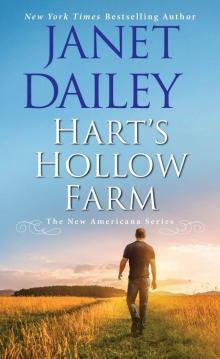 Hart's Hollow Farm
Hart's Hollow Farm Holding Out for Christmas
Holding Out for Christmas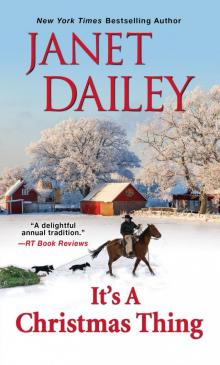 It's a Christmas Thing
It's a Christmas Thing Texas Forever
Texas Forever Calder Born, Calder Bred
Calder Born, Calder Bred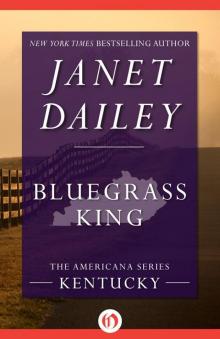 Bluegrass King (The Americana Series Book 17)
Bluegrass King (The Americana Series Book 17)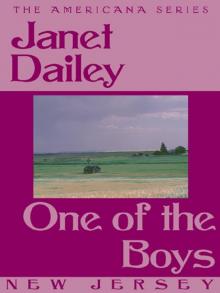 One of the Boys
One of the Boys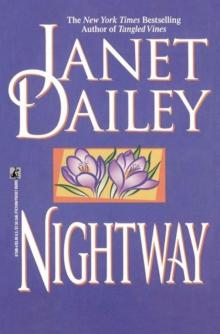 Nightway
Nightway This Calder Sky
This Calder Sky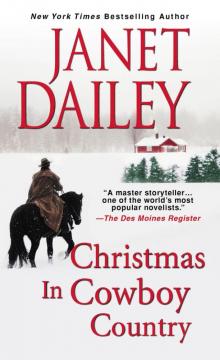 Christmas in Cowboy Country
Christmas in Cowboy Country The Widow and the Wastrel
The Widow and the Wastrel Separate Cabins
Separate Cabins Darling Jenny
Darling Jenny With a Little Luck
With a Little Luck The Thawing of Mara
The Thawing of Mara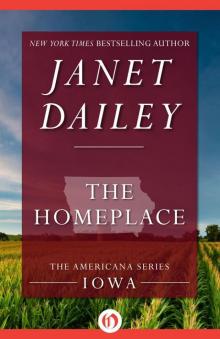 The Homeplace (The Americana Series Book 15)
The Homeplace (The Americana Series Book 15) American Dreams
American Dreams Merry Christmas, Cowboy
Merry Christmas, Cowboy Lord of the High Lonesome
Lord of the High Lonesome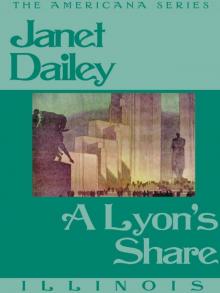 A Lyon's Share
A Lyon's Share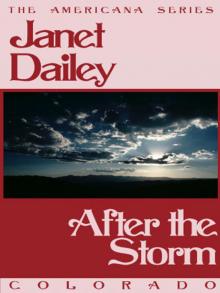 After the Storm
After the Storm Masquerade
Masquerade Long, Tall Christmas
Long, Tall Christmas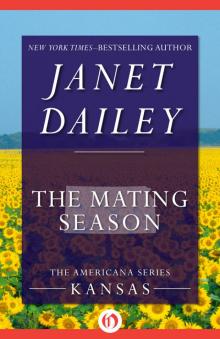 The Mating Season
The Mating Season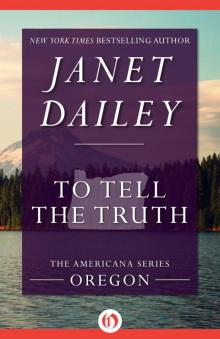 To Tell the Truth
To Tell the Truth A Land Called Deseret
A Land Called Deseret Ride the Thunder
Ride the Thunder That Boston Man
That Boston Man Wild and Wonderful
Wild and Wonderful Sonora Sundown: Arizona (The Americana Series Book 3)
Sonora Sundown: Arizona (The Americana Series Book 3) Texas Tall
Texas Tall Giant of Mesabi
Giant of Mesabi The Bride of the Delta Queen
The Bride of the Delta Queen Wildcatter's Woman
Wildcatter's Woman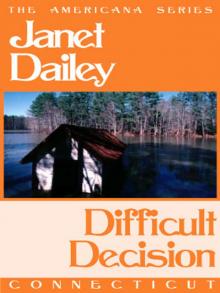 Difficult Decision
Difficult Decision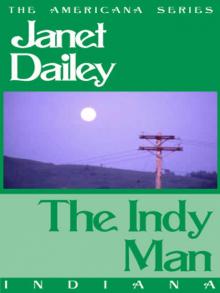 The Indy Man
The Indy Man Dakota Dreamin'
Dakota Dreamin' Kona Winds
Kona Winds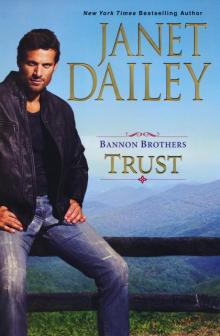 Bannon Brothers
Bannon Brothers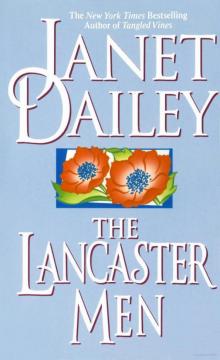 The Lancaster Men
The Lancaster Men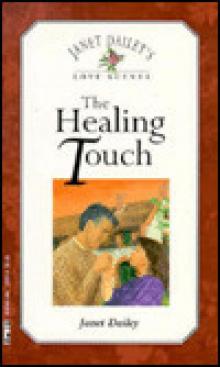 janet dailey- the healing touch
janet dailey- the healing touch Strange Bedfellow
Strange Bedfellow Leftover Love
Leftover Love Big Sky Country
Big Sky Country My Kind of Christmas
My Kind of Christmas You're Still The One
You're Still The One Calder Storm
Calder Storm Calder Pride
Calder Pride Low Country Liar
Low Country Liar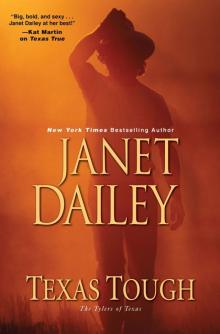 Texas Tough
Texas Tough Foxfire Light
Foxfire Light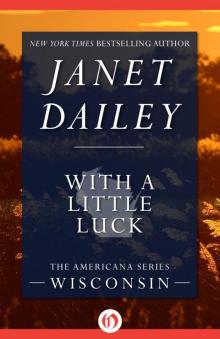 With a Little Luck (The Americana Series Book 49)
With a Little Luck (The Americana Series Book 49)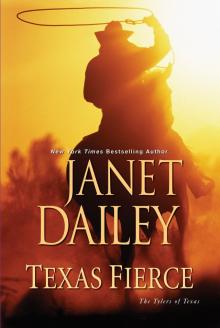 Texas Fierce
Texas Fierce Sentimental Journey
Sentimental Journey The Pride of Hannah Wade
The Pride of Hannah Wade Shifting Calder Wind
Shifting Calder Wind Santa In Montana
Santa In Montana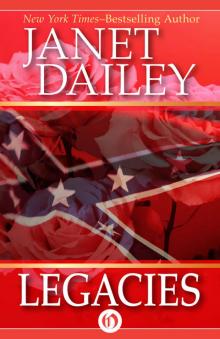 Legacies
Legacies Land of Enchantment
Land of Enchantment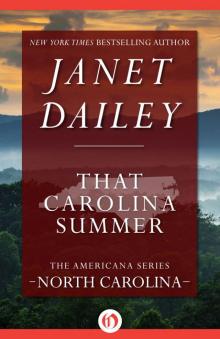 That Carolina Summer (North Carolina)
That Carolina Summer (North Carolina) Reilly's Woman
Reilly's Woman Refuge Cove
Refuge Cove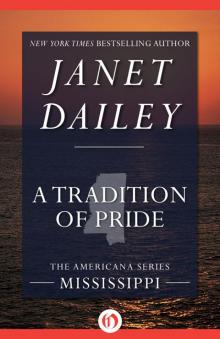 A Tradition of Pride
A Tradition of Pride Bed of Grass
Bed of Grass To Santa With Love
To Santa With Love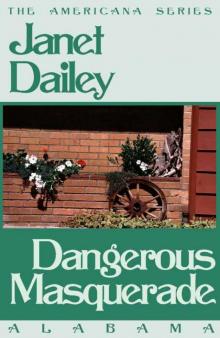 Dangerous Masquerade
Dangerous Masquerade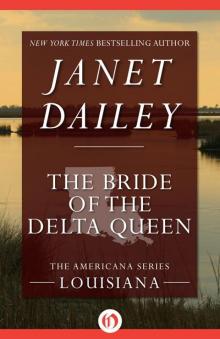 The Bride of the Delta Queen (The Americana Series Book 18)
The Bride of the Delta Queen (The Americana Series Book 18) Six White Horses
Six White Horses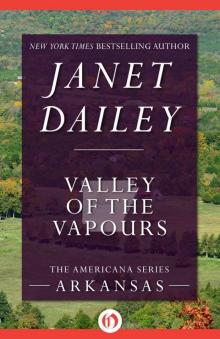 Valley of the Vapours (The Americana Series Book 4)
Valley of the Vapours (The Americana Series Book 4)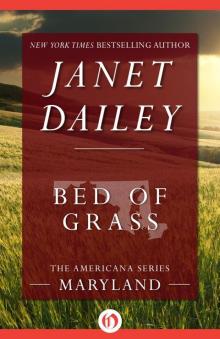 Bed of Grass (The Americana Series Book 20)
Bed of Grass (The Americana Series Book 20)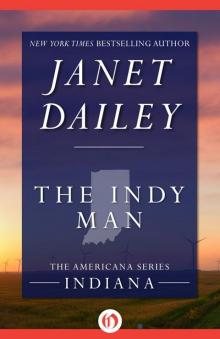 The Indy Man (The Americana Series Book 14)
The Indy Man (The Americana Series Book 14) After the Storm (The Americana Series Book 6)
After the Storm (The Americana Series Book 6) Heiress
Heiress Silver Wings, Santiago Blue
Silver Wings, Santiago Blue The Rogue
The Rogue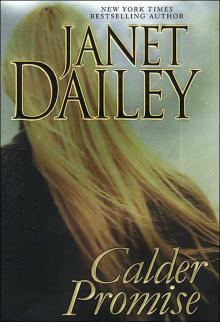 Calder Promise
Calder Promise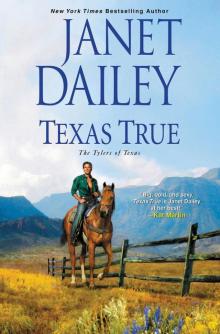 Texas True
Texas True Stands a Calder Man
Stands a Calder Man Fiesta San Antonio
Fiesta San Antonio Fire and Ice
Fire and Ice For the Love of God
For the Love of God The Ivory Cane
The Ivory Cane Northern Magic
Northern Magic The Glory Game
The Glory Game The Homeplace
The Homeplace The Great Alone
The Great Alone Summer Mahogany
Summer Mahogany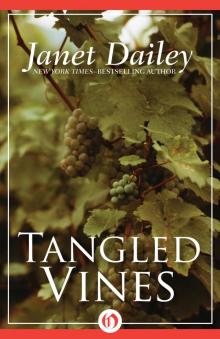 Tangled Vines
Tangled Vines Southern Nights: Florida (The Americana Series Book 9)
Southern Nights: Florida (The Americana Series Book 9) Beware of the Stranger
Beware of the Stranger Big Sky Country: Montana (The Americana Series Book 26)
Big Sky Country: Montana (The Americana Series Book 26)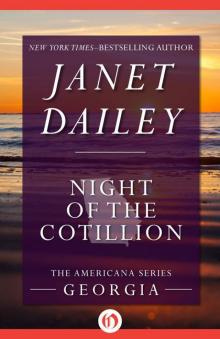 Night of the Cotillion: Georgia (The Americana Series Book 10)
Night of the Cotillion: Georgia (The Americana Series Book 10) Green Mountain Man
Green Mountain Man For Mike's Sake
For Mike's Sake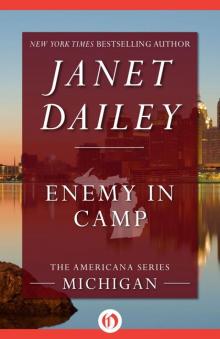 Enemy in Camp (The Americana Series Book 22)
Enemy in Camp (The Americana Series Book 22)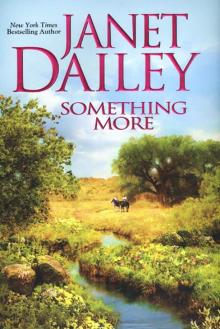 Something More
Something More Rivals
Rivals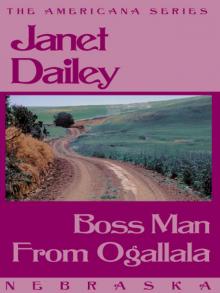 Boss Man from Ogallala
Boss Man from Ogallala Just a Little Christmas
Just a Little Christmas Sunrise Canyon
Sunrise Canyon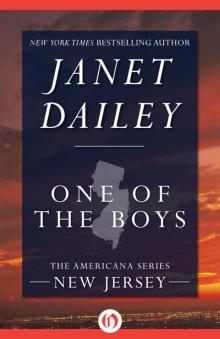 One of the Boys (New Jersey)
One of the Boys (New Jersey) This Calder Range
This Calder Range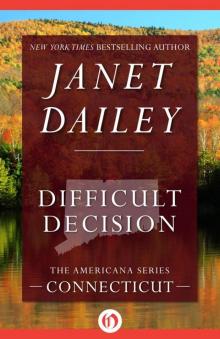 Difficult Decision: Connecticut (The Americana Series Book 7)
Difficult Decision: Connecticut (The Americana Series Book 7)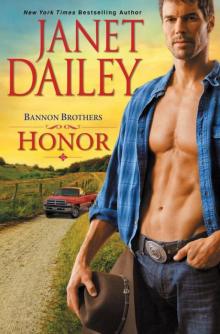 Honor
Honor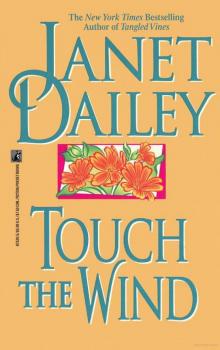 Touch the Wind
Touch the Wind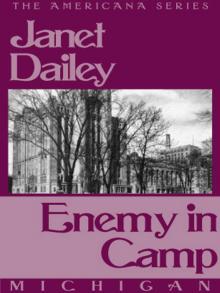 Enemy in Camp
Enemy in Camp Show Me
Show Me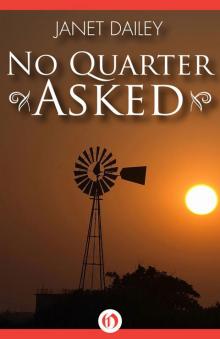 No Quarter Asked
No Quarter Asked The Second Time
The Second Time Aspen Gold
Aspen Gold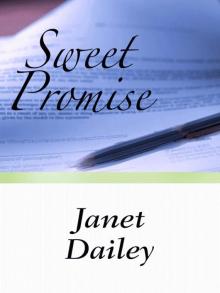 Sweet Promise
Sweet Promise Triumph
Triumph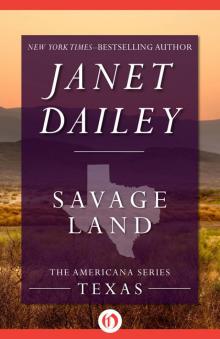 Savage Land
Savage Land Fire and Ice (The Americana Series Book 5)
Fire and Ice (The Americana Series Book 5) Western Man
Western Man The Traveling Kind
The Traveling Kind The Hostage Bride
The Hostage Bride Terms of Surrender
Terms of Surrender Tidewater Lover
Tidewater Lover Illusions
Illusions Texas Free
Texas Free Lone Calder Star (Calder Saga Book 9)
Lone Calder Star (Calder Saga Book 9)